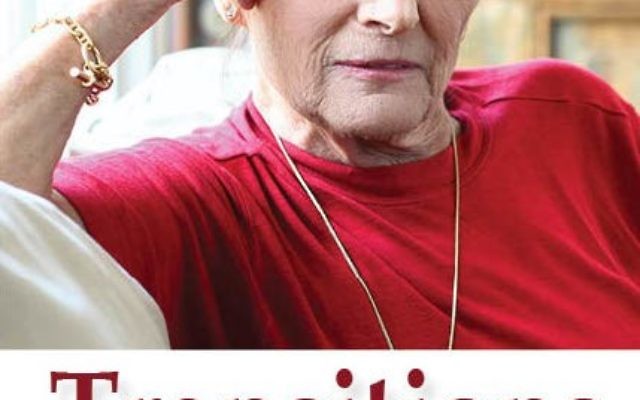Dayan’s Daughter Looks Back in Sadness
By Arlene Appelrouth | aappelrouth@atljewishtimes.com
Everyone’s life is filled with change.
The life of Yael Dayan, writer, political activist and daughter of legendary Israeli military leader Moshe Dayan, has been dramatic and filled with passion, tragedy and adventure. Her life has been rich with unusual experiences.
Her memoir, “Transitions,” now translated into English, describes her life from the vantage point of a 75-year-old woman dealing with illness and facing mortality after a life of many losses. She has buried her father, her husband and her brother.
This book looks death in the face and describes it in a poetic style.
To read Dayan’s memoir is to feel her sadness, know her disappointments and experience compassion for her as she accepts the loss of her younger self.
Her writing is brutally honest as she reveals deeply personal experiences and feelings about life in Israel as the daughter of a military hero, with whom she had a complicated relationship.
In the preface, the author explains that she did not write her story in chronological order. She realizes that the order of the book and her priorities in telling her life story might seem random to a reader.
“I took the liberty of writing about my own transitions from the naïve Israeli teenager and soldier to the sophisticated and indulged best-selling writer; and from there all the way to the mature, wise old woman, looking back with a degree of frustration on dreams never to be fulfilled,” she writes.
This is the way she describes herself in the beginning of the book: “I am a seventy-four-year old grandmother, a retired civil servant, the widow of a high-ranking IDF officer. I walk around the house with an oxygen concentrator, transposed from my place as an initiator, generator of action, to an object of it.”
Like most seniors, Dayan is forgetful and has to deal with a mind that is not as sharp as when she was young. She describes her forgetfulness this way: “I jot down numbers in the wrong order, go to the kitchen only to forget what I needed, pour milk from a closed carton, look for things that I placed in their usual spot and don’t find them.”
Something unusual about the structure of this memoir is the way Dayan vacillates between first and second person. Much of the book is written as if she is talking to herself as she remembers her life events.
Her explanation for this method is that she has more than one self. “In addition to myself, ‘I,’ recounting and telling, there is also another me, observing, witnessing, daring to search deeper and addressing myself as ‘you’ conversing intimately with me.”
She writes the way she has talked to herself and allows the reader to listen in.
For instance, as she evaluates what life is like as a sick, old woman, she asks herself: “What do you miss? What kind of happiness is now out of reach? When did the balance between the lust for life and the preoccupation with death shift? When did good health give way to illness and pain?”
Dayan doesn’t write only about negative topics.
She writes about conversations with famous writers such as Truman Capote, Tennessee Williams and Carson McCullers.
This short book is an interesting read. Enriching the story are many photographs of Dayan as a young girl and young adult. There are photographs of her alone and others of her with the family she grew up in and of the family she and her husband created.
There is one picture of her with Hillary Clinton taken when Bill Clinton was president.
Yael Dayan has lived a life most would find exciting. Reading her story is a pleasant way to spend a few hours.





comments